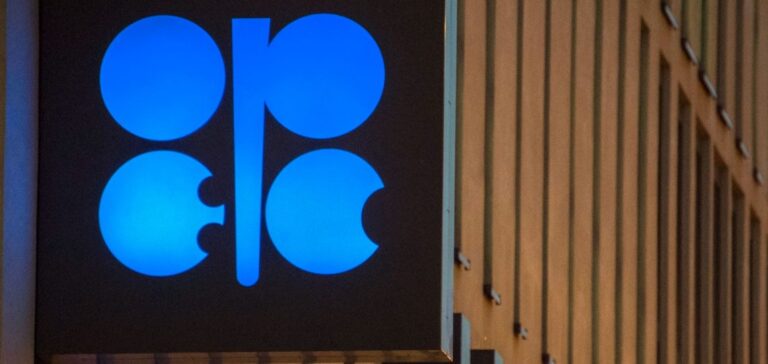A political headache coupled with a diplomatic slap in the face: the decision by Opec+ to cut production, which could cause prices at the pump to soar, comes at a bad time for Joe Biden, a month before crucial legislative elections.
In a statement, he said he was “disappointed with the short-sighted decision” of the cartel of black gold producing and exporting countries.
“It is clear that with its decision today, Opec+ aligns with Russia,” said then, hardening the tone, its spokeswoman Karine Jean-Pierre.
The 13 members of the Organization of the Petroleum Exporting Countries, led by Saudi Arabia, and their 10 partners led by Russia have agreed to a drop of “two million” barrels per day for the month of November.
This drastic cut could cause crude oil prices to soar to the benefit of producing countries, including Russia, which needs hydrocarbon sales to finance its invasion of Ukraine.
– Strategic Reserves –
Faced with this economic and electoral risk, the White House is already outlining its response. In particular, it will “put ten million barrels of strategic oil reserves on the market next month”.
The U.S. government had already decided in March to put these black gold reserves, now at their lowest level since July 1984, to work for several months.
“The United States can not draw forever on strategic reserves … and OPEC knows it,” said analyst Andy Lipow (Lipow Oil Associates), for whom the solution would be “to produce more oil” on U.S. soil.
The president, who is regularly criticized by the Republican opposition for curbing the oil industry, promised Wednesday to explore “any additional responsible actions to continue to increase production with immediate effect” in the United States.
Joe Biden also wants to consider how best to “reduce Opec’s control over energy prices,” according to the lengthy White House statement, which does not, however, explain what it means by this.
According to Andy Lipow, Joe Biden has another, rather radical lever: he could “decide on a ban on crude oil exports” from the United States.
But the expert points out that “this would penalize European and Asian allies”. On the contrary, the American president needs to look after his partners in order to face Russia and China.
For the time being, Joe Biden is reduced to expressing his frustration, and appealing to businesses to curb prices at the pump.
– Fist bump –
The 79-year-old Democrat knows that a rise in gasoline prices a month before the midterm congressional elections would undermine the chances of his party, which so far hopes to retain at least control of one of the two houses of Congress, the Senate.
Joe Biden and the Democrats more generally have been buoyed recently in the polls by concerns in the United States about abortion rights.
But the return of economic concerns to the campaign trail would potentially benefit the Republican camp.
A political headache, the major cut in Opec+ is also a diplomatic slap in the face for Joe Biden.
The U.S. president was in Jeddah, Saudi Arabia, in July for an official visit that saw him exchange a “fist bump”, a familiar greeting fist to fist, with Crown Prince Mohammed bin Salmane, and participate in a summit with many Arab leaders.
The White House insists that the trip, which was strongly criticized by human rights activists, had nothing to do with oil.
However, Joe Biden said on the spot that he had had “a good discussion” with the Saudis on the need for “an adequate supply of oil to support global economic growth”.
“I am one of those who thought the president’s trip to Saudi Arabia went well. The Opec decision+ tells me I was wrong.
The Saudis have made it clear that they don’t care about their relationship with Biden,” commented political scientist David Rothkopf on Twitter.





















